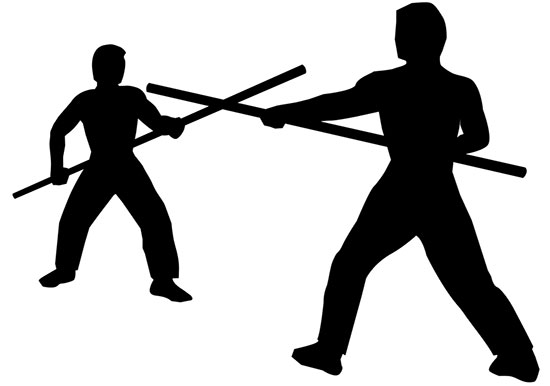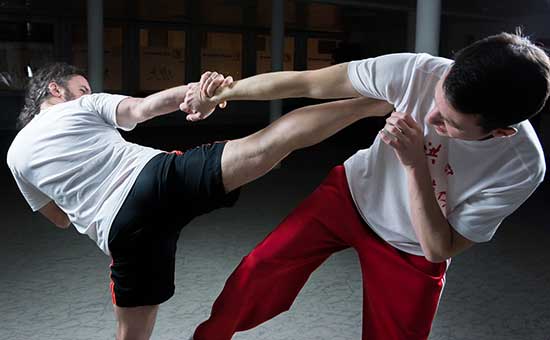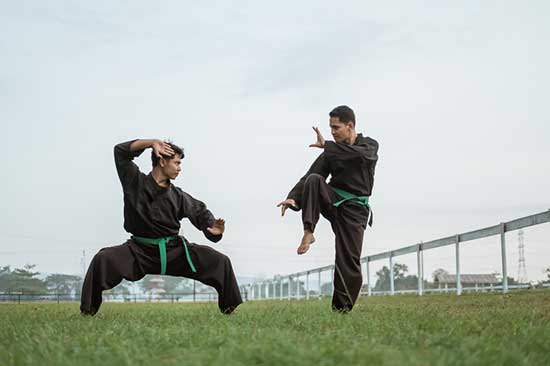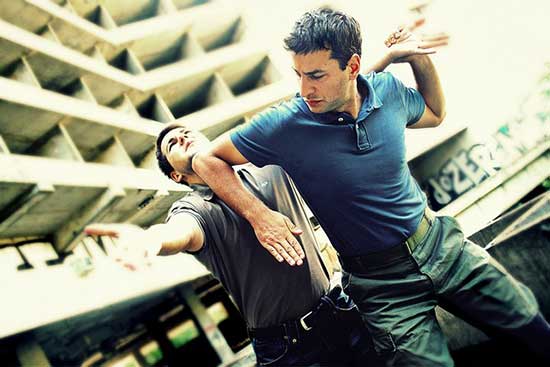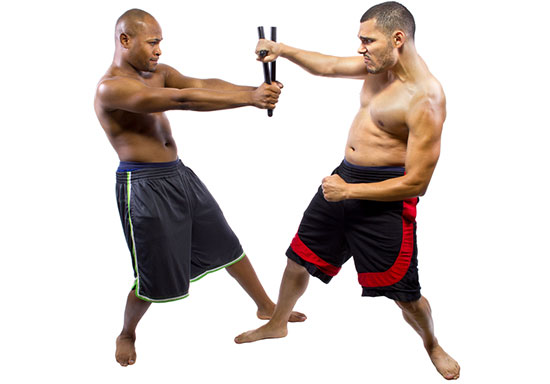There’s no question that martial arts can provide a world of benefits to both kids and adults. It teaches discipline, respect, how to set goals, and how to achieve them.
But before you sign up for a class, there are some things you should look out for in the instructor — signs of a bad martial arts instructor.
Contents
So what are the Signs of a bad Martial arts Instructor?
1. He pushes his own abilities
It might seem like a nice gesture, but if the instructor constantly boasts about how great he is, beware.
It’s a sign of egoism, which will soon become a problem in a class where the students are supposed to become better than the instructor.
This doesn’t mean you should avoid classes from instructors with years of experience, but it is rather, you avoid an instructor that tries to impose his abilities on you.
If his way is the only way, don’t bother. If he talks about himself and not his students, don’t expect solid and useful advice in your training sessions.
2. He pushes a single-method
If you ask him about all the different types of martial arts out there, he should be able to give you some basic knowledge of all the different styles of martial arts.
The complex answer, I know. But if he talks only about a single technique and can’t offer more, then don’t bother. Don’t worry, though — not every instructor is this bad or worse than that — but do watch out for it.
3. He ignores your questions
If you have a question about the technique, be sure to voice it right away. If the instructor doesn’t explain something right away, it’s probably not going to happen for a while.
And if you can’t put up with that long period of time and want an immediate answer, find another class.
4. Impatient
Martial Arts is a long journey. If you want a quick fix to learn all the katas in a week’s time, then go take up something else.
Martial arts is about patience and practice — the instructor should be patient enough to explain it over and over again until you get it down.
5. Hire him for his lessons, not just his martial arts
It’s important that your instructor have real-life experience when it comes to what he teaches. If not, then before you sign up, take the instructor aside and ask him about his training.
Does he have much experience doing what he is teaching? Ask him when he started learning martial arts and what he studied.
Ask as many questions as possible to get your mind off the fact that you have to learn so much. Don’t go to a teacher with unrealistic expectations — find one that isn’t going to waste your time.
6. He won’t give credit to others in the class
The instructor who claims to have taught himself everything there is to know about martial arts should know enough to realize that the gifted and talented are out there.
If your instructor doesn’t acknowledge the work of others in his class, he can only be described as uncreative and unoriginal.
7. Bullies and uses “bad” language
Many martial arts schools claim that they are different from other schools, but there are always some bullies out there with self-serving intentions. You don’t want to be treated like dirt or abused by your instructor.
Moreover, the martial arts instructor must display good language in speaking and writing. If he can’t get that right, how is he going to teach discipline?
8. He doesn’t highlight the progress of his students
The instructor should keep track of your progress and assess whether or not you did well on a test or a skill or if you have improved over time.
If he doesn’t do it, then he isn’t interested in your growth and improvement. Find an instructor who stresses teaching and training rather than constant testing to determine how good you are.
9. Does not offer Sparring Sessions
Sparring sessions are the best way for students to learn in a safe and controlled environment. If he does not offer sparring sessions, or if he is reluctant to do so, run away — and fast.
You should be able not only to practice your kicks and punches but also to learn what works and what doesn’t in an actual fight.
10. He plans little or no competitions and doesn’t provide certificates
Competitions are a great way to measure your progress, as well as give you a chance to win something useful like trophies.
So you go to the next competition regardless of your level, even though you have never been to one before. Or if he looks at competitions as a glorified sparring session, then he’s not worth your time.
Also, a good instructor should be able to provide certificates at the end of certain courses — even if it’s just a certificate that shows that you have successfully completed a class or one that shows that you have high standards in technique and discipline.
11. He is in bad shape
If your instructor does not go to the gym to work out and maintain his fitness, he’s doing more harm than good for the students.
Most martial arts fight moves are done with a partner, so if you do not maintain your level of fitness, then you are going to be in for some trouble in a fight situation.
12. He doesn’t teach what works in real-life situations
An experienced instructor should know that the student should be able to relate the techniques that he teaches in real-life situations.
If your instructor fails to do so, then he’s not worth mentioning. You should not only be able to perform all sidekicks and tricks that he is teaching, but you should also know when best to use them.
How can a Student avoid Bad Martial Art Instructors?
Martial Arts Schools
While it is true that most martial arts schools focus on making money primarily, there are still a lot of honest instructors out there who are passionate about their art and want to impart that knowledge to beginners and, yes, even Black Belts.
The school’s Reputation
Ask around about the school, find out if it’s popular in the area or if it has many members, or if it has received any awards for good teaching practice, etc.
Also, get recommendations from people you know. If you find out that it has, then the instructor must be doing something right.
The instructor’s experience
Find out if the instructor has had a lot of training and is qualified to teach you how to fight. Ask him when he started practicing martial arts and what he studied in the beginning.
You don’t want someone who got his black belt in a few months to teach you how to defend yourself in real-life fights.
But having said that, you shouldn’t be looking for someone with 20 years of experience either. Somewhere in between is what you are looking for.
Conclusion
Don’t expect that you will be able to master the art in a few classes. It takes time, effort, and dedication from both the instructor and the student.
The true test of a good martial arts instructor is not his ability in martial arts but his ability to pass on his knowledge to students.
So the next time you’re considering enrolling in a martial arts class, just ask your instructor to show you his skills first.
Don’t let him mesmerize you with his words, and try to sell you martial arts lessons by showing off his special kung fu moves.
